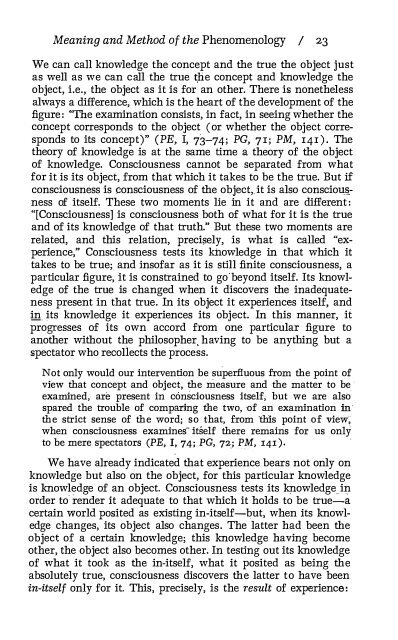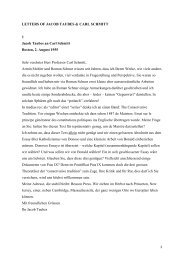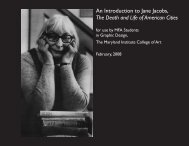selection one - Sound and Signifier
selection one - Sound and Signifier
selection one - Sound and Signifier
You also want an ePaper? Increase the reach of your titles
YUMPU automatically turns print PDFs into web optimized ePapers that Google loves.
Meaning <strong>and</strong> Method of the Phenomenology / 23<br />
We can call knowledge the concept <strong>and</strong> the true the object just<br />
as well as we can call the true t;he concept <strong>and</strong> knowledge the<br />
object, i.e., the object as it is for an other. There is n<strong>one</strong>theless<br />
always a difference, which is the heart of the development of the<br />
figure : "The examination consists, in fact, in seeing whether the<br />
concept corresponds to the object (or whether the object corresponds<br />
to its concept)" (PE, I, 73-74; PC, 71; PM, 141). The<br />
theory of knowledge is at the same time a theory of the object<br />
of knowledge. Consciousness cannot be separated from what<br />
for it is its object, from that which it takes to be the true. But if<br />
consciousness is consciousness of the object,. it is also consciou.ness<br />
of itself. These two moments lie in it <strong>and</strong> are different:<br />
"[Consciousness] is consciousness both of what for it is the true<br />
<strong>and</strong> of its knowledge of that truth." But these two moments are<br />
related, <strong>and</strong> this relation, precisely, is what is called "experience,"<br />
Consciousness tests its knowledge in that which it<br />
takes to be true; <strong>and</strong> insofar as it is still finite consciousness, a<br />
particular figure, it is constrained to go beyond itself. Its knowledge<br />
of the true is changed when it discovers the inadequateness<br />
present in that true. In its object it experiences itself, <strong>and</strong><br />
in its knowledge it experiences its object. In this manner, it<br />
progresses of its own accord from <strong>one</strong> particular figure to<br />
another without the philosopher, having to be anything but a<br />
spectator who recollects the process.<br />
Not only would our intervention be superfluous from the point of<br />
view that concept <strong>and</strong> object, the measure <strong>and</strong> the matter to be<br />
examined, are present in consciousness itself, but we are also<br />
spared the trouble of comparing the two, of an examination in'<br />
the strict sense of the word; so that, from -this point of view;<br />
when consciousness examines- itSelf there remains for us only<br />
to be mere spectators (PE, I, 74; PG, 72.; PM, 141).<br />
We have already indicated that experience bears not only on<br />
knowledge but also on the object, for this particular knowledge<br />
is knowledge of an object. Consciousness tests its knowledge in<br />
order to' render it adequate to that which it holds to be true-a<br />
certain world posited as existing in-its elf-but, when its knowledge<br />
changes, its object also changes. The latter had been the<br />
object of a certain knowledge; this knowledge having become<br />
other, the object also becomes other. In testing out its knowledge<br />
of what it took as the in-itself, what it posited as being the<br />
absolutely true, consciousness discovers the latter to have been<br />
in-itself only for it. This, precisely, is the result of experience :




